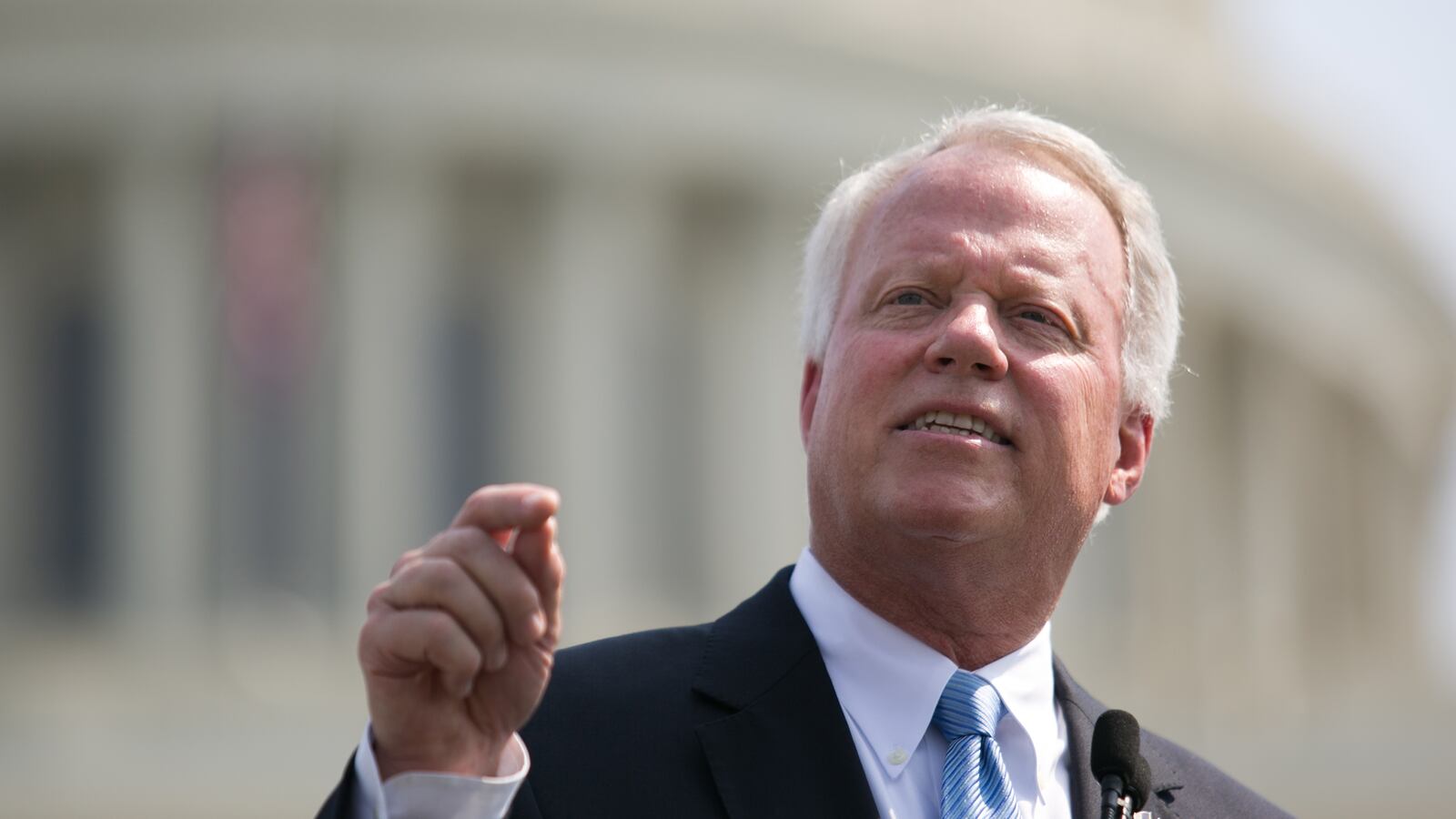
Between the “reverse migration” of African Americans from Northern cities to places like the Atlanta metropolitan area, and the rapid pace of Latino immigration, Georgia has seen a dramatic demographic shift in the last ten years. So much so, in fact, that it was nearly competitive in the 2008 presidential election. Optimistic Democrats believe that this is the year where the party has a shot at statewide office, but at least one Republican—a contender for the Republican Senate nomination in the state—disagrees
“The only way Georgia is going to change is if we have all these illegal aliens in here in Georgia, [and] give them the right to vote,” said Tea Party congressman Paul Broun on a local radio show, “It would be morally wrong, it would be illegal to do so, under our current law.”
He continues: “Actually, all these illegal aliens are getting federal largesse and taking taxpayers’ dollars. That’s the only way this state is going to become Democratic again, in the next number of decades,” he said.
Broun is right about one thing: At 425,000, Georgia has one of the largest populations of undocumented immigrants in the United States. Otherwise, everything here is false. There is no immigration bill that would give immediate citizenship to undocumented immigrants—the “Gang of Eight” proposal has a decade-long “path to citizenship”—and it’s simply not true that immigrants are “getting federal largess”; without authorization, immigrants are barred from most federal benefit programs.
Indeed, in many cases, the opposite is true: Immigrants pay payroll and sales taxes without getting benefits in return.
If Broun were just a fringe figure, you could ignore these comments. But he echoes a whole host of Republicans who have done nothing but alienate immigrant communities—including Latinos and Asian Americans—with dehumanizing rhetoric (immigration advocates oppose use of the term “illegal alien”). What’s more, because of his popularity with base voters in Georgia, he stands a decent chance of winning the nomination and representing the GOP in the state’s Senate race this fall. In which case, he becomes a huge liability to the Republican Party and its diversity efforts.
I’m skeptical of the Democratic view that immigration will harm the GOP’s long-term viability. Nothing in politics is stable, and odds are best that the Republican Party will change with the nation’s demographics. But there are moments, like this one, when I’m not so sure. For the GOP to make any headway with Latino or Asian American immigrants, it needs to present itself as friendly to their core interests.
If that doesn’t happen—if it becomes identify with opposition to immigrant communities—then there’s no amount of outreach that will repair the damage. Whether Broun realizes it or not, he’s helping to build a world where the GOP can’t compete with a large and growing segment of America.






